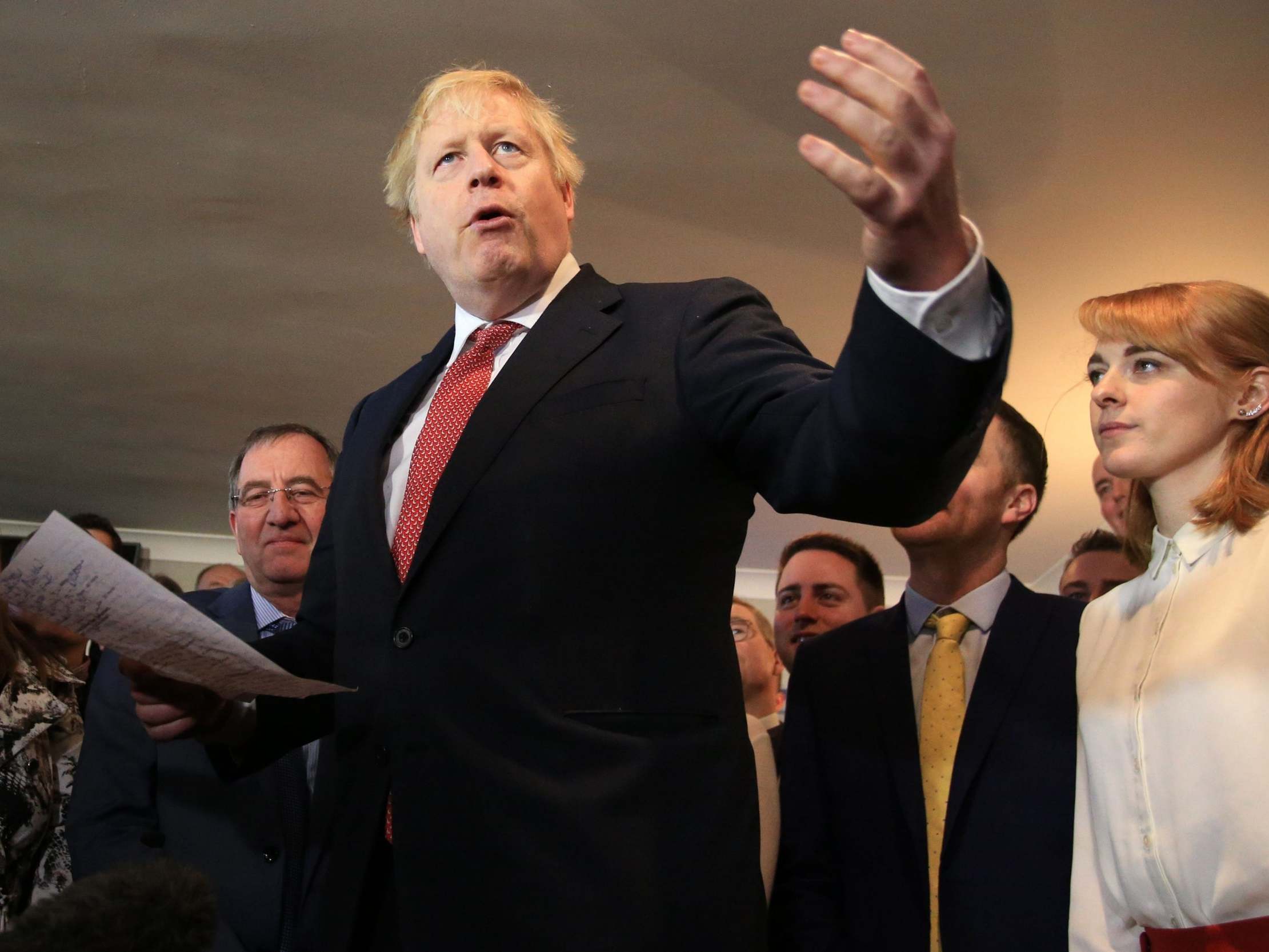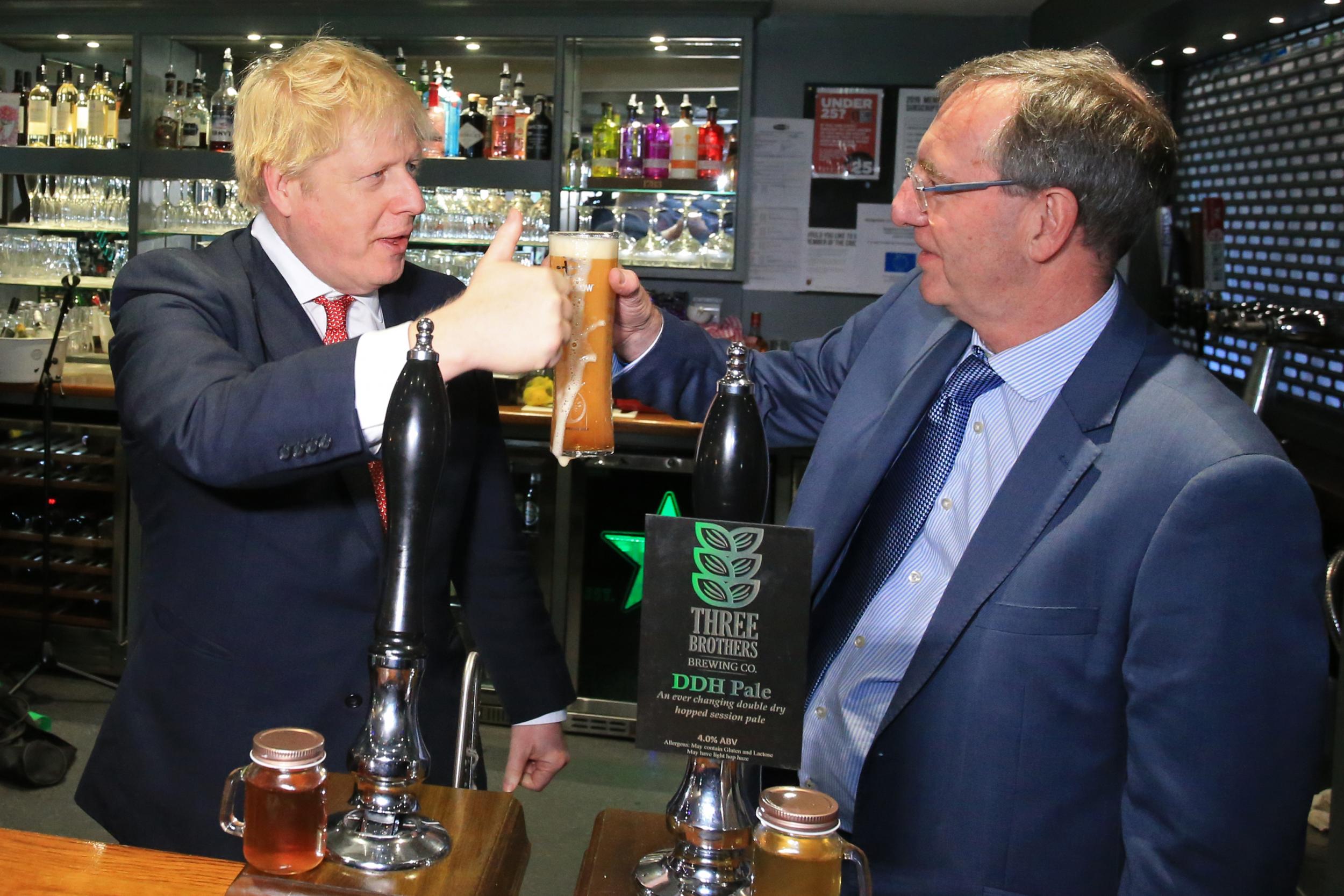Why the A-level results fiasco risks damaging Boris Johnson’s ‘levelling up’ agenda
With former ‘red wall’ seats already in the cross hairs of coronavirus and a no-deal Brexit, Kate Devlin considers whether this latest impact on pupils from disadvantaged areas could return those seats to Labour


Boris Johnson won the 2016 European Union referendum with two messages. The first, famously, was “take back control”. The second was little said, but there nonetheless.
The Leave campaign tried to convince people in parts of Britain that felt left behind that they were being listened to, that they were being heard.
When he got into Downing Street, Mr Johnson attempted to recreate some of that same feeling around the 2019 general election.
At the time, his government was struggling. He could not get his Brexit deal through parliament any more than Theresa May had been able to get hers.
As the pressure mounted, government sources briefed that they would call a “people versus parliament” election.
Just weeks later, after Mr Johnson secured an 80-seat majority in the House of Commons, he stood on the streets of Downing Street and vowed to “unite and level up” the country.
His message was directed especially at so-called “red wall” seats in Wales and England, which had voted Conservative, some of the first time ever, guaranteeing his huge majority.
Since then, Mr Johnson has banged the drum again and again for his levelling up agenda.
It was forced to take a back seat when the coronavirus crisis hit Britain earlier this year, but in recent weeks. Mr Johnson and many of his ministers have pledged to “double down on levelling up”.

So far levelling up exists more as a brand than anything tangible, but nonetheless yesterday’s A-level results risk damaging that brand.
Thousands of English pupils now believe that their postcode held back their life chances, in a way that many had always feared it would.
That the message came at a formative age, just as they are eligible to vote, will worry Tory supporters.
Their parents, who saw them toil and work for what they believe their grades should be, are also left hearing the same message.
That private schools appear to have benefited will only cement that impression further.
In recent months, new Tory MPs from the red wall have been very vocal in the House of Commons. They’ve raised issues, no matter how unfashionable, affecting their constituents. Some of them even demanded an inquiry into Mr Johnson’s own chief adviser, Dominic Cummings, after it emerged he broke lockdown rules earlier this year.
All are keen to ensure they hold on to their seats at the next general election.
John Curtice, the Strathclyde University professor and noted psephologist, has a question he likes to pose about voters who switch allegiances.
Have they gone on holiday to their new party, he asks. Or have they moved there permanently?
The Conservative hope that they are with them to stay and that the now “blue wall” of seats does not crumble as swiftly as its predecessor at the next election.
But yesterday’s A-level results, and the GCSE results to follow, will have done little to convince many voters in those seats that they are being listened to – or that the country is being levelled up.
Join our commenting forum
Join thought-provoking conversations, follow other Independent readers and see their replies
Comments